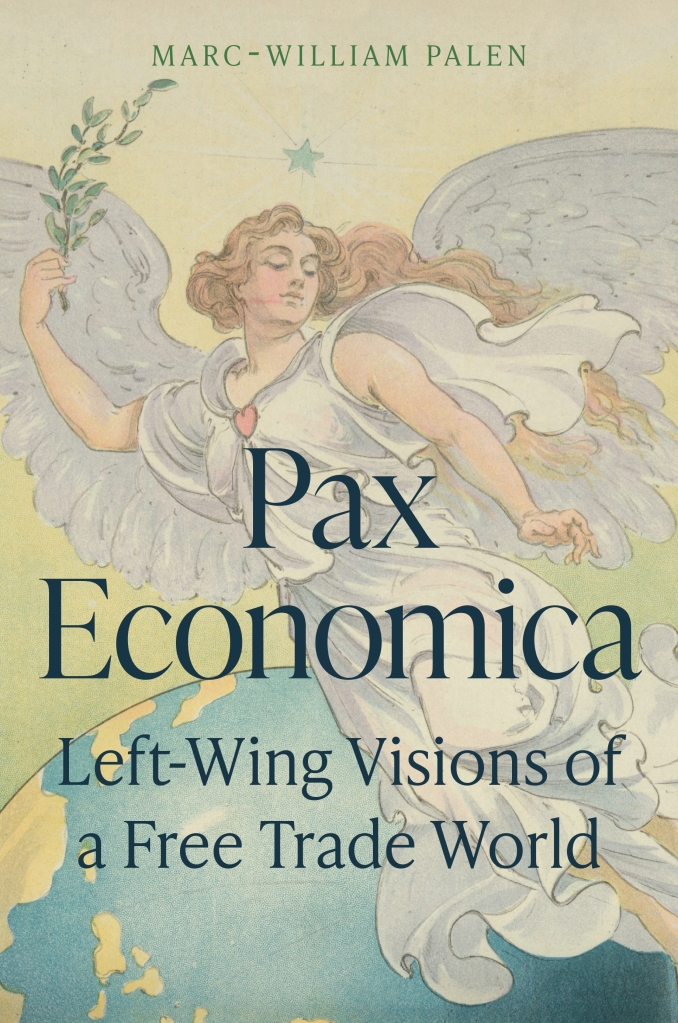Richard Toye and Marc-William Palen
University of Exeter
In this episode of the Talking Empire series, Professor Richard Toye sat down with Marc-William Palen to discuss his new book Pax Economica: Left-Wing Visions of a Free Trade World (Princeton University Press, 2024). Pax Economica recovers the radical left-wing origins of free trade and globalization.
Through a wide-ranging discussion – from Gershwin musicals, to Norman Angell, to cheap food, and neoliberalism – Palen discusses with Toye the ways in which the book’s actors strike a stark contrast to today’s common association of free trade with right-wing free marketeers. Pax Economica‘s counterhistory of an idea traces how – beginning in the mid-19th century – liberal radicals, socialist internationalists, feminists, and Christians joined left-wing forces to undermine imperialism and war.
Through networks crisscrossing the British, American, Spanish, German, Dutch, Belgian, Italian, Russian, French, and Japanese empires, these left-wing globalists condemned the economic nationalist turn to high tariffs and government subsidies among the industrializing empires after 1870. They argued that the extreme protectionism and trade wars of the rival Euro-American empires created the monopolies, trusts, geopolitical conflict, and colonial expansion that followed, culminating in two world wars.
Their envisaged left-wing free trade order – what they called their “pax economica” – instead promised peace, prosperity, democracy, and decolonization, to be maintained through supranational governance via the League of Nations, the United Nations, and the World Trade Organizaiton. The book’s findings offer timely lessons for our increasingly economic nationalist and war-torn world.
Click here for further details and to purchase a copy.



 In 1902, journalist John A. Hobson published Imperialism: A Study. The book was among the first to connect the rise of finance capital with the growth of imperial expansion after 1870. Hobson’s theory would fast number among the most influential critiques of imperialism. Although Hobson himself was not a Marxist (he was a classical liberal), his theory would play a key role in shaping subsequent Marxist theories of imperialism, most notably that of V. I. Lenin.
In 1902, journalist John A. Hobson published Imperialism: A Study. The book was among the first to connect the rise of finance capital with the growth of imperial expansion after 1870. Hobson’s theory would fast number among the most influential critiques of imperialism. Although Hobson himself was not a Marxist (he was a classical liberal), his theory would play a key role in shaping subsequent Marxist theories of imperialism, most notably that of V. I. Lenin.







You must be logged in to post a comment.